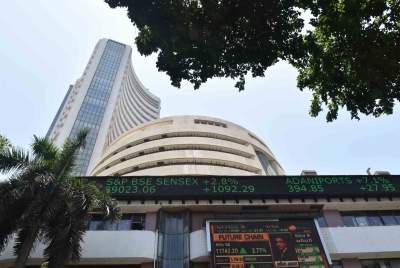Mumbai (IANS) The BSE 30-stock benchmark Sensex hit a lifetime high, surging past the 70,000 mark in morning trade on Monday but then lost ground to settle at 69,928.53 at close, after the USFDA released an adverse report on Dr. Reddy’s Laboratories.
The crash in the pharma major’s shares brought both the Sensex and Nifty from all-time highs.
The Sensex ended 102.93 points higher at the end of the day as the rally in bank shares, Indian Railway Finance Corporation (IRFC) and Indian Renewable Energy Development Agency (IREDA) along with PSU banks held their ground.
The NSE Nifty 50 hit a high of 21,026, but eventually settled at 20,997.10 with a gain of 27.7 points The Nifty PSU Bank index also hit a new high and was the top out-performer of the day.
UltraTech Cement was the top gainer among the Sensex 30 shares, it jumped 3.5 per cent. Nestle India, Power Grid Corporation, IndusInd Bank, JSW Steel, Tata Motors and NTPC were the other prominent gainers.
On the other hand, Axis Bank, Mahindra & Mahindra and Hindustan Unilever were among the losers..
Among individual shares, Dr Reddy’s shed 5 per cent after US drug regulator’s adverse comments following an an inspection of the company’s manufacturing facility at Bachupally in Hyderabad.
Commenting on the stock market performance, George Thomas, Fund Manager Equity at Quantum Mutual Fund, said: “Buoyant earnings trajectory along with a stable domestic macro environment have led to markets scaling new highs. Favorable corporate earnings cycle, stable policy environment and potential FPI flows could support markets in the medium term.”
Majority of the top 1,000 stocks (sorted by current market cap) have recorded price returns that exceeded their earnings growth.
Investors should exercise caution in select pockets where stock performance have exceeded the earnings growth by a wide margin, he advised.
“Considering the favourable environment, investors are advised to stay invested in equities in line with their long-term asset allocation plan. A disciplined value fund would be an ideal choice at this point due to its favourable valuation relative to the broader markets and potentially ‘higher for longer’ global interest rate scenario,” Thomas added.

